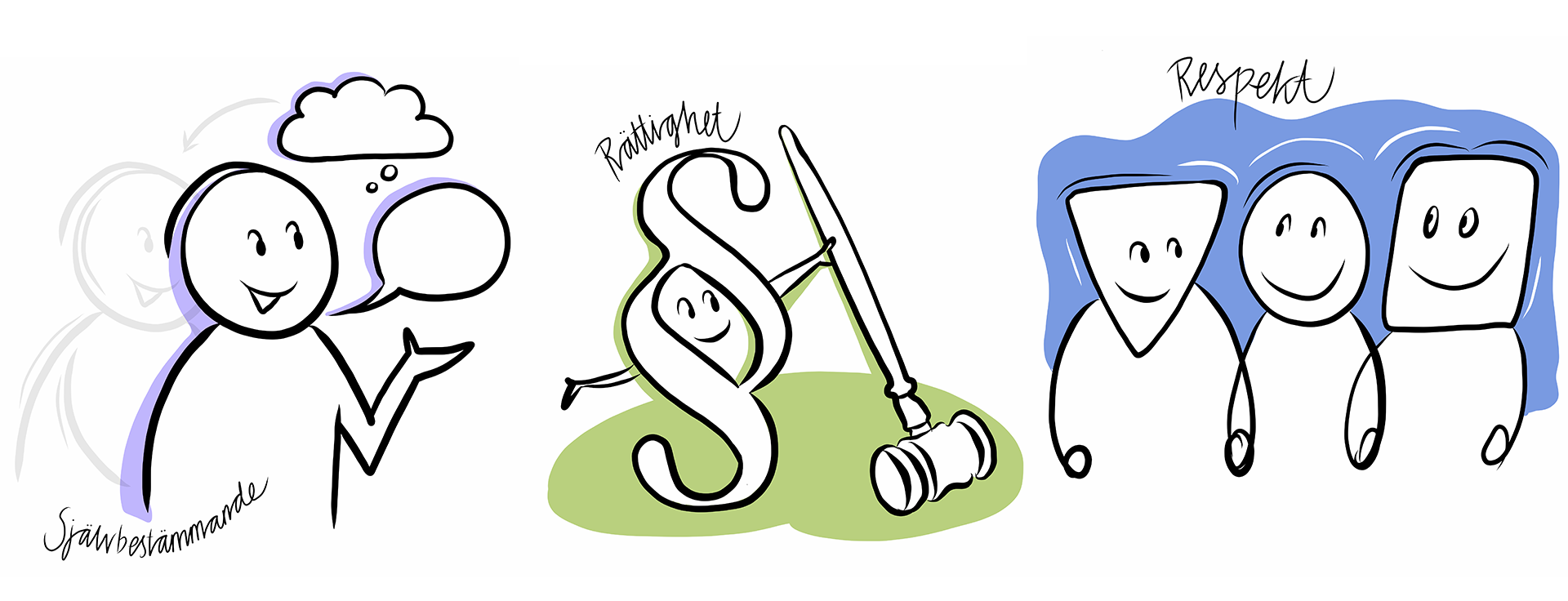
New Report: On IQ Discrimination – A Study in Normalized Injustice
We have asked members of the National Association JAG if they experience IQ discrimination in society. This report is based on the results and how it relates to Sweden’s implementation of the UN Convention on the Rights of Persons with Disabilities. Like many others, we believe that Sweden has not fully implemented the convention, which has also led to criticism from the UN Committee. People with intellectual disabilities are discriminated against in various contexts, and their rights under Article 12 of the convention are not respected.
Download the report here!
On IQ discrimination A study in normalized injustice 2025
Om IQ-diskriminering En studie i normaliserad orättvisa 2025
Back to the swedish IQual site
IQual – a knowledge hub on human rights for people with extensive disabilities, one of which is an intellectual impairment.
- IQual aims to gather and disseminate knowledge about self-determination and participation for people with extensive disabilities.
- Human rights are our starting point. Welfare is one of several means to realize international conventions, national ambitions, and achieve equality.
- We actively seek collaboration with other actors – such as researchers, investigators, media, and disability rights organizations. We want to be an enabler and a source of knowledge about solutions and obstacles for people with extensive disabilities. Contact
- We want to have a special focus on areas and issues where real knowledge is lacking and where the space in the debate is instead characterized by outdated views and prejudices. Better data leads to wiser decisions.

What is meant by IQ discrimination?
Those who cannot clearly express their will to anyone are not considered to have the same need for self-determination as others. If you have an intellectual disability and significant communication difficulties, you are often treated worse than others. In society at large, this means that people with intellectual disabilities are treated as objects and made invisible.
IQ discrimination means that people are disadvantaged based on their IQ. This can happen in various ways, for example, by people with intellectual disabilities not having the same opportunities for education, healthcare, social activities, and community as others.
Discrimination based on IQ can be both direct and indirect. Direct discrimination means that someone is treated worse than others in a comparable situation because of their intellectual disability. Indirect discrimination can occur through rules or routines that seem neutral but in practice disadvantage people with intellectual disabilities.
If I cannot express my will myself and do not have the right decision support that can help me express my will, it is direct IQ discrimination.
Examples of IQ discrimination
- Many people with intellectual disabilities who need a legal guardian do not have the opportunity to have a bank ID..Debattartikel – Heja olika (in swedish)
- Diagnoses are made without sufficient investigations.
- Teeth are extracted instead of being repaired.
- Life-sustaining measures are not implemented in emergency care.
- Denied entry to restaurants.
- Not being welcome at leisure activities such as camps.
- Segregated schools.
- Often forced to live in group homes/institutions due to lack of right to assistance. (Institutions do not enable independent living and thus are an obstacle to human rights).
- Segregated daily activities.
- Dehumanizing language: ”He became a vegetable after the accident.”
What do we mean when we say institution?
The general comment No. 5 to Article 19 of the UN Convention on the Rights of Persons with Disabilities describes the characteristics of institutional environments.
These environments can vary in size, name, and setup, but they share certain defining features. These include:
- Sharing assistants with others and having limited or no influence over who provides assistance.
- Isolation and segregation from independent living in the community.
- Lack of control over everyday decisions.
- Limited ability to choose who to live with.
- Inflexible routines that do not consider personal will and preferences.
- Identical activities in the same place for a group of people under a certain authority.
- A paternalistic approach in service provision.
- Supervision over one’s living situation.
- Often a disproportionately large number of people with disabilities living in the same place.
General comment No 5 UN Convention on the Rights of Persons with Disabilities article 19
Contakt

Agneta Scherman – Operations Manager IQual
Phone 076-545 30 38
Email agneta.scherman@iqual.se

